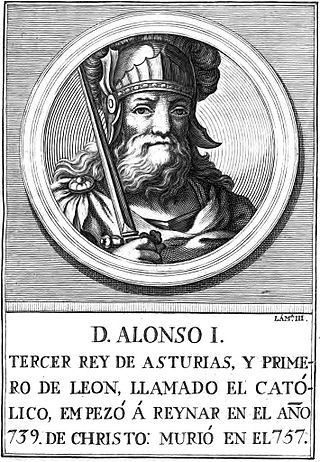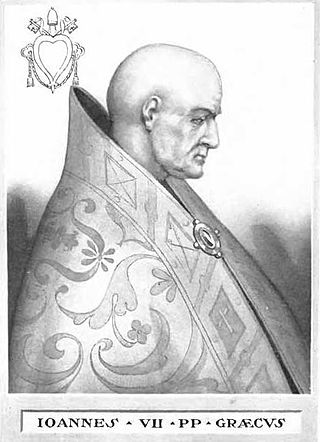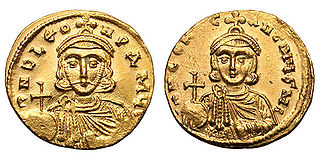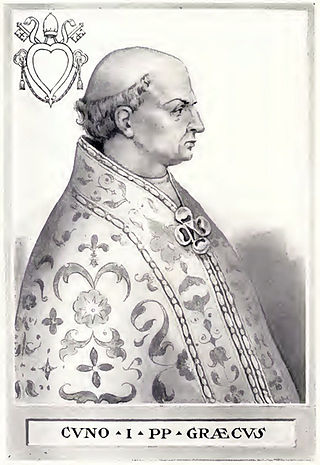The 720s decade ran from January 1, 720, to December 31, 729.
The 710s decade ran from January 1, 710, to December 31, 719.
The 700s decade ran from January 1, 700, to December 31, 709.

Year 742 (DCCXLII) was a common year starting on Monday of the Julian calendar, the 742nd year of the Common Era (CE) and Anno Domini (AD) designations, the 742nd year of the 1st millennium, the 42nd year of the 8th century, and the 3rd year of the 740s decade. The denomination 742 for this year has been used since the early medieval period, when the Anno Domini calendar era became the prevalent method in Europe for naming years.
The 630s decade ran from January 1, 630, to December 31, 639.
The 670s decade ran from January 1, 670, to December 31, 679.
The 680s decade ran from January 1, 680, to December 31, 689.
The 690s decade ran from January 1, 690, to December 31, 699.

Year 740 (DCCXL) was a leap year starting on Friday of the Julian calendar, the 740th year of the Common Era (CE) and Anno Domini (AD) designations, the 740th year of the 1st millennium, the 40th year of the 8th century, and the 1st year of the 740s decade. The denomination 740 for this year has been used since the early medieval period, when the Anno Domini calendar era became the prevalent method in Europe for naming years.

Year 743 (DCCXLIII) was a common year starting on Tuesday of the Julian calendar. The denomination 743 for this year has been used since the early medieval period, when the Anno Domini calendar era became the prevalent method in Europe for naming years.
Year 763 (DCCLXIII) was a common year starting on Saturday of the Julian calendar. The denomination 763 for this year has been used since the early medieval period, when the Anno Domini calendar era became the prevalent method in Europe for naming years.

Year 705 (DCCV) was a common year starting on Thursday of the Julian calendar, the 705th year of the Common Era (CE) and Anno Domini (AD) designations, the 705th year of the 1st millennium, the 5th year of the 8th century, and the 6th year of the 700s decade. The denomination 705 for this year has been used since the early medieval period, when the Anno Domini calendar era became the prevalent method in Europe for naming years.

Year 717 (DCCXVII) was a common year starting on Friday of the Julian calendar. The denomination 717 for this year has been used since the early medieval period, when the Anno Domini calendar era became the prevalent method in Europe for naming years.

Year 686 (DCLXXXVI) was a common year starting on Monday of the Julian calendar. The denomination 686 for this year has been used since the early medieval period, when the Anno Domini calendar era became the prevalent method in Europe for naming years.

Year 687 (DCLXXXVII) was a common year starting on Tuesday of the Julian calendar. The denomination 687 for this year has been used since the early medieval period, when the Anno Domini calendar era became the prevalent method in Europe for naming years.

Year 716 (DCCXVI) was a leap year starting on Wednesday of the Julian calendar, the 716th year of the Common Era (CE) and Anno Domini (AD) designations, the 716th year of the 1st millennium, the 16th year of the 8th century, and the 7th year of the 710s decade. The denomination 716 for this year has been used since the early medieval period, when the Anno Domini calendar era became the prevalent method in Europe for naming years.

700 (DCC) was a leap year starting on Thursday of the Julian calendar, the 700th year of the Common Era (CE) and Anno Domini (AD) designations, the 700th year of the 1st millennium, the 100th and last year of the 7th century, and the 1st year of the 700s decade. As of the start of 700, the Gregorian calendar was 3 days ahead of the Julian calendar, which was the dominant calendar of the time.

Year 646 (DCXLVI) was a common year starting on Sunday of the Julian calendar. The denomination 646 for this year has been used since the early medieval period, when the Anno Domini calendar era became the prevalent method in Europe for naming years.

Year 674 (DCLXXIV) was a common year starting on Sunday of the Julian calendar. The denomination 674 for this year has been used since the early medieval period, when the Anno Domini calendar era became the prevalent method in Europe for naming years.

Year 721 (DCCXXI) was a common year starting on Wednesday of the Julian calendar. The denomination 721 for this year has been used since the early medieval period, when the Anno Domini calendar era became the prevalent method in Europe for naming years.












